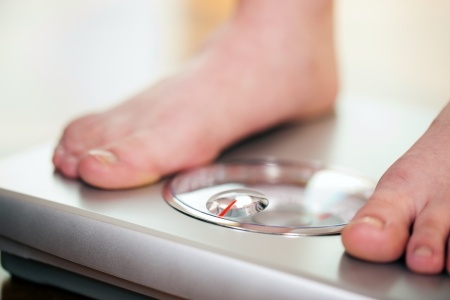 Losing weight may be easier than maintaining it consistently for a period of time. According to certain estimates, up to 85% of individuals losing weight end up regaining a certain amount. Some of the reviews found out that almost two third dieters regained the amount of weight they’ve lost.
Losing weight may be easier than maintaining it consistently for a period of time. According to certain estimates, up to 85% of individuals losing weight end up regaining a certain amount. Some of the reviews found out that almost two third dieters regained the amount of weight they’ve lost.
After weight loss, the body runs through different hormonal and metabolic changes. Consequently, it may increase the appetite, stimulate hunger and slow down metabolism. All of these may obstruct the efforts put in for weight loss, as pointed out by a New York based dietician. According to
Rachael Stahl, the hormone called leptin points out brain of having sufficient energy stored goes down as early as people lose weight. Whenever it goes down, metabolism slows down while the appetite increases. Ghrelin, referred as ‘hunger hormone’ is known for stimulating hunger. It increases as early as people may lose weight and it may lead to promoting fat storage and increased food intake.
A year after weight loss, the hormones and metabolic rates failed to go back to the pre-diet standards, as pointed out by a 2011 medical journal. It means the maintenance of new and lighter weight requires low calorie consumption per day compared to someone weighing the same as you, as pointed out by certified dietician and nutritionist Jenifer Christman. Human body is designed to put on weight easily. After losing weight for the first time, the body grows insecure of shortage in food supply. You can take a hint from the below mentioned tips:
Monitor your weight
According to weight loss expert Johnsrund, after losing weight, people should measure it for at least once in a week throughout their life. Although it may just appear daunting, more information and knowledge means the power to fight weight gain. Go for weight measurement on the same day per week to check out fluctuations triggered by liquid and food intake. It may just alert you of weight gain whenever it starts.
Exercise regularly
Exercise is out of the best ways to fight body’s desire to regain weight. According to nutritionist Christman, dieting helps in weight loss but there is no substitute to physical activity. Building of more muscles remains a win-win situation. According to research outcome, exercise can reduce hunger, prevent the building of fat cells and encourage body in burning extra calories.
Begin journaling
Maintaining a proper food journal may increase the awareness of your own food habits. Advancement in technology means it is much easier to monitor the level of food consumption and exercising. You may blog it, take pictures, or log the updates from smartphone. It helps in identifying the trends, patterns and habits leading to weight gain.
Seek support and encouragement
Based on a research study, receiving social encouragement and being considered to be accountable may motivate females to weight loss and maintaining it. Always engage yourself with family members, colleagues and friends to support you in your efforts. You may also communicate with an online community through social networking.
Get as much sleep as possible
Eight to nine hours sleep is extremely essential to as poor sleep may trigger unnecessary hunger.
Mindful approach
Be it eating, exercising, sleep or maintaining a journal, it is important to prevent overeating.
Image credit: 123rf.com






